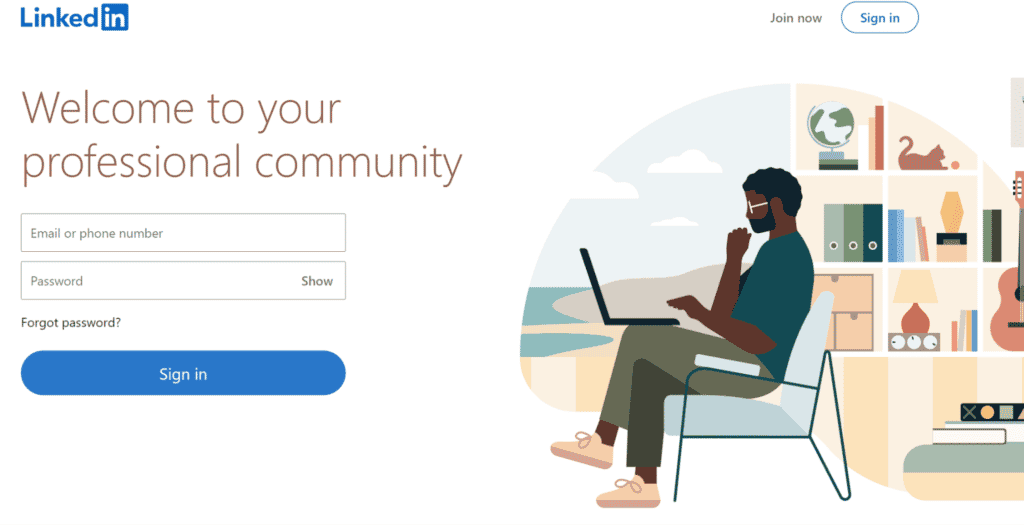The Importance of Building Rapport with Customers
For small businesses, building rapport with customers is essential. Right from the first impression, it’s the glue that holds your business together and helps you build a solid and loyal customer base.
In business terms, it’s about understanding your customers so well that you anticipate what they need before they even ask for it. You know their pain points, frustrations, fears and concerns. You know what keeps them up at night, because you’ve been there too.
Studies have shown that it’s six to seven times more expensive to attract a new customer than to retain your existing ones. By building good rapport and focusing on satisfying your existing customer’s needs, you can minimize your long-term costs.
Rapport building also helps to improve the customer experience. This can lead to more positive reviews.
Did you know Signpost is used by thousands of small service businesses to build a trusted online reputation? Let us show you how our review software works.
In this article, we’ll review 10 easy ways you can start building your client relationships today. Keep reading to learn how you can get started.
10 Easy Rapport-building Methods
It’s time to turn on your emotional intelligence and start building rapport. Here are 10 easy strategies you can implement today to start building trust and genuine interest from the customer end.
1. Prioritize the basics
Prioritizing is important. While talking to customers, especially if you’re meeting for the first time, you should ask them their name and some of their interests. This will help you to get a clear idea about their basic details.
Give your customers undivided attention and show them you’re a good listener. Never interrupt them when they are speaking; rather, let them finish first before asking any questions.
How you speak is just as important as what you say in building rapport with others. Use a warm and friendly tone while talking to people so that they can connect with you quickly and easily.
As a home service business, it’s an important factor to talk with new clients directly about what they need. After all, you’re probably catering to a local neighborhood and community full of familiar faces. It’s best to make yourself and your brand personable.
2. Find common ground
Here’s an example of how you can find common ground:
In the plumbing business, you will find that many homeowners who call your business to get a leak in their bathroom fixed are likely nervous. You can ease their nerves by making small talk. Ask them about how they’ve been doing and find a common topic to build rapport through.
For example, if the customer mentions their children, you can relate by saying that you have children as well.
Using ice breakers is not elaborate salesmanship; it’s just simple, human curiosity that you can use to build good communication.
There is also an emotional side to this work. We may have interests in common with our customers, and our customers have interests in common with us. How we show that interest is critical for building long-term loyalty.
3. Mirror and match
Mirroring and matching are techniques for building rapport by making yourself more like the other person.
“Mirroring” is making yourself act like the other person, so you can step into their shoes. People who mirror each other tend to bond because it feels as though they’re being understood.
“Matching” is a slightly more difficult technique that works even better when you pick someone else at random, rather than mirroring them. Matching is “empathizing with the other person’s experience.” You need to be sympathetic to their customer experience.
Let’s say you are meeting a contracting client at a job site. One simple but subtly effective way to mirror and match them is by mirroring body language.
Let’s say the client likes to cross his arms when he’s standing or sitting next to you. After a few minutes of conversation, if he hasn’t uncrossed his arms, then you should match him and cross your arms too.
Other ways you can mirror clients is by:
Focusing on their facial expressions
Maintaining eye contact
Using a similar language or tone to theirs
4. Remember their sales history and preferences
Your current customers are a source of sales history and preferences that you can leverage to provide them with a better experience.
For example, if you’re an electrician, imagine that you have a customer named Tom. Tom has called your service line before to have a ceiling fan installed in his bedroom and also to have the lights in his kitchen replaced. Now imagine that Tom calls again, but this time he needs the circuit breaker in his basement replaced.
You could approach this call several ways:
“What can I do for you today?” (if you don’t know who’s calling)
“How can I help you, Tom?” (if you recognize the customer)
“Hey Tom! How are things going? I see your last two jobs were for wiring projects. Do you need another wire run?” (if you remember who’s calling and what they’ve asked for before)
The last method is by far the strongest approach, because it shows that you’re interested in what matters to your customer—plus, it shows the customer that you have effective communication, and it builds mutual trust.
5. Add customers on LinkedIn or other social media platforms
You could use social media to learn more about your customers. Add them on LinkedIn and see which connections you have in common, or whether they are members of the same Facebook groups. If it’s a business customer, there might be a profile on their company website with pictures.

If you’re a roofer, for example, don’t just add people who need a new roof. Add your competitors and their suppliers as well, along with architects and realtors. This will give you broader reach and allow you to build relationships with people who may not need your services, but have contacts who do.
6. If they left you a review, respond to it!
Did you know that brands are viewed favorably by 77% of customers if they proactively accept and invite feedback?
Whenever a customer leaves you a review, respond to it. Whether it’s positive or negative, write a reply.

If it’s positive, thank the customer for the feedback and let him or her know how much you appreciate the business.
If the review is negative, apologize and let the writer know you’re working on fixing the problem he or she mentioned. This is also a good opportunity to ask whether your customer would like to talk over the phone.
Once your customers have spoken with you personally, they might even update their reviews!
7. Talk about shared experiences
Talking about shared experiences can be a powerful rapport-building technique. It’s one of the best ways to create a strong relationship by establishing commonalities, and it’s often easier to do this than you might think.
When you’re meeting a client for a first meeting, start with shared experiences. Talk about things you have in common, or if you can’t find any, talk about family, friends and hometowns. If you can’t find any of those things in common, utilize your active listening skills and ask them open-ended questions about themselves.
The more things you can find that you have in common with your customers, the easier it will be to establish a sense of trust.
8. Regularly ask them for advice and constructive feedback
Asking for feedback from your clients can be insightful, and it often leads to better working relationships. It also shows that you value their opinions.
It’s as simple as it sounds: Ask for advice on how you can improve the relationship or their experience with you.
Asking for feedback does not always mean you need to change something about your work. Sometimes, it gives you confirmation that you’re on the right track. Other times, it will help you identify areas that need improvement so that you can adjust and make improvements where necessary.
9. Don’t underestimate the power of gift-giving
Gift-giving is another great way to build rapport with your contacts, clients, and customers. A great way to get gift ideas is by learning about their personal interests from asking questions. You can give small tokens or gifts during birthdays, anniversaries, or holidays.

Source: Val’s Services
For example, let’s say you’re a plumber and you’re visiting a household client with lots of children. You can make simple gestures like giving customers chocolate bars, candies, and mints to make sure that your customers have a pleasant experience while you’re there.
10. Check in and follow up with customers regularly, even outside of business!
Be sure to follow up regularly on any issues or problems that arise. When you do, check in with them just to make sure everything is going well and ensure that they don’t need anything else from you.
During the holidays or birthdays, you can send cards to your clients (both existing and new), or send out candy during Halloween or Christmas. You can use marketing automation to do this too.
It adds a personal touch and really makes a difference in helping your business stand out from the local competition.
Engage with Your Customers with Signpost
At the end of the day, your customers want to be treated like human beings. Establishing solid communication and building a personal relationship through customized, personal experiences can go a long way.
Signpost can help your business answer all inbound customer inquiries through our mobile app and instant response features. Request a demo today and never miss a lead again!

